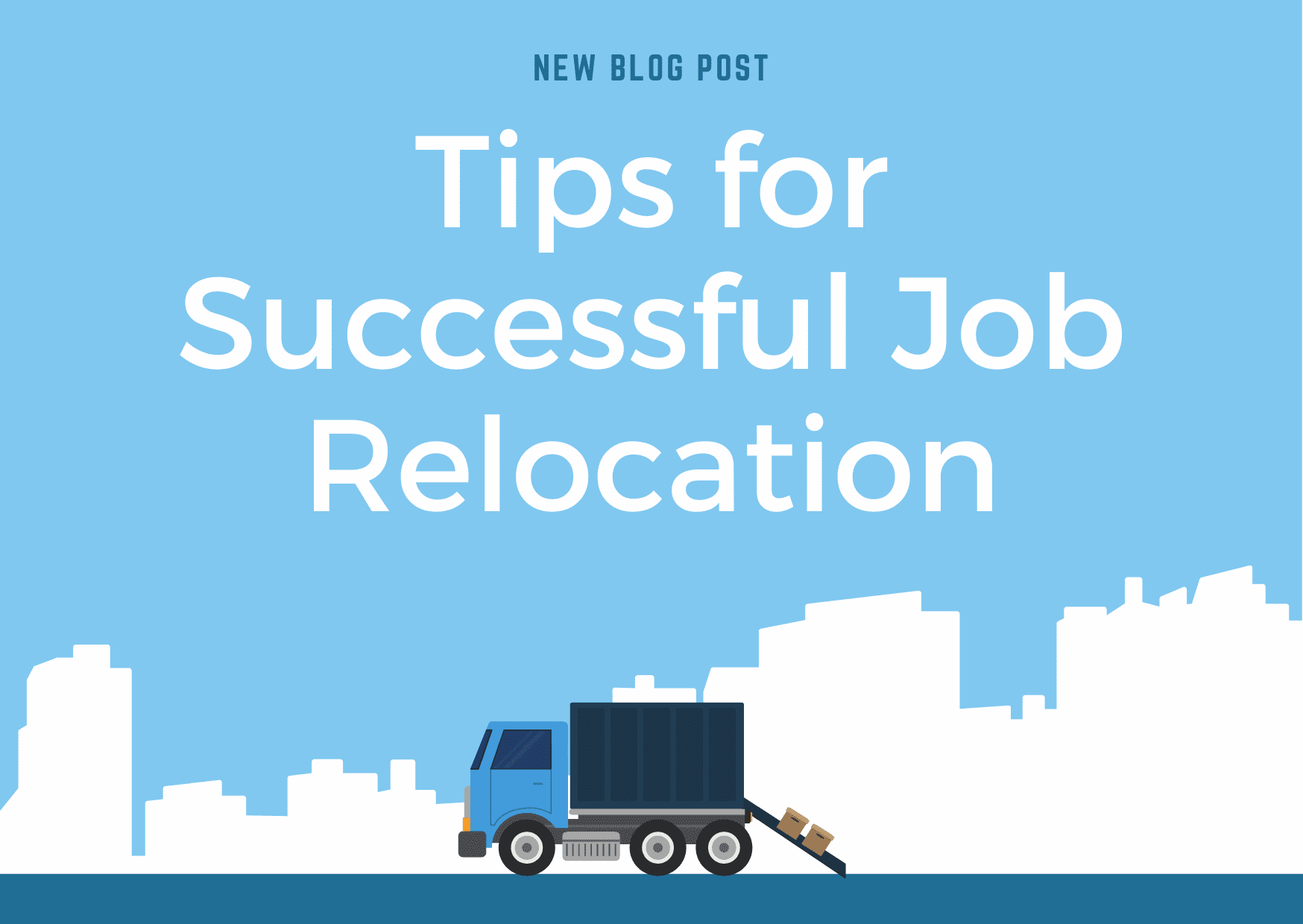How to Successfully Relocate For A Job

If you’ve accepted a new position in a new city or town, it can be quite an adjustment especially if you have a spouse or kids to consider. However, it doesn’t have to be an overwhelming experience and there are some tools you can use to help minimize any stressors. We’ve compiled a few tips to ensure your transition goes as smoothly as possible.
Stay Organized
Start planning the minute you think there is a chance you will be relocating. Keeping checklists of everything from selling your old house to buying your new one can be a lifesaver and help avoid little tasks from slipping through the cracks. You also will want to set the desired budget for all your relocation expenses. Travel, moving, and housing fees can add up quickly, so stay mindful of this. Lastly, lay out a timeline of everything that needs to be done. You probably will want some time to get your bearings before jumping right into the office, so give yourself a couple of extra days to settle in before your start date.
Get to Know Your New City
Find which neighborhoods are safe, how the school districts are, and what the community feel is like. If you’re wanting to be even more prepared ask around and see what the people who live or have lived there have to say. If it’s in your budget, visit and see for yourself. There’s no better way to know how you may feel in a new environment than going and experiencing it firsthand!
Ask for Relocation Assistance
Some companies offer assistance for relocating expenses such as house-hunting trips, temporary housing, selling your previous home, buying your new home, transportation of household belongings/vehicles, tax liability, and more. However, if this isn’t advertised or typical of your employer to do, make sure to ask. Do the research and be knowledgeable about what exactly you’re asking for, whether that’s reimbursement for shipping costs or getting the contact of a preferred provider of the company for relocation support.
Understand Tax Libialities with Moving
The tax laws changed in 2018 and all relocation costs are now taxable. If an employer is helping with the costs of the relocation, some companies will cover the tax liability for the employee. It is important to have this discussion early in the recruitment/planning process.

